Overview
The School of Humanities, Media, and Creative Communication asks fundamental questions about how we live now in Aotearoa New Zealand and globally.
- What does it mean to be human?
- How and why do we connect with others?
- How did we get here, and where to from here?
Our teaching and research within culture, society and the arts contributes to an increasingly complex and interconnected world. We contribute to people's lives and tackle challenges as diverse as climate change and its impacts, social justice, and wellbeing.
Research and teaching within the School spans multiple areas and methodologies, including:
- classical studies
- creative writing
- English literature
- expressive arts
- history
- languages including Chinese, French, Japanese, Portuguese and Spanish
- linguistics and applied linguistics
- media studies
- philosophy
- theatre studies.
Te Tiriti o Waitangi at Massey
We are deeply committed to being a Tiriti-led university, demonstrating authentic leadership in contemporary Aotearoa New Zealand as we uphold te Tiriti o Waitangi, the founding document of our nation, and its principles through our practice. We embrace this not just as an obligation but as a real opportunity for the nation and its people.
Te Tiriti o Waitangi ki Te Kunenga ki Pūrehuroa – The Treaty of Waitangi at Massey
Study with us
Choose from a range of qualifications. All our specialisations (majors) can be minors, plus minor-only subjects such as French, Portuguese and theatre studies.
Explore by area of interest
Explore a selection of qualifications relating to your interests.
Study English, writing & theatre
Explore the incredible world of literature and creative writing with our range of qualifications. Make your passion a career path, starting today.
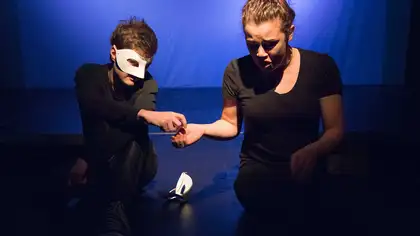
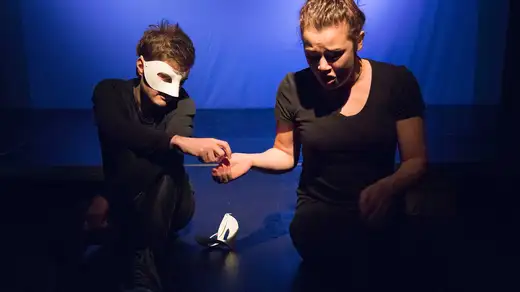
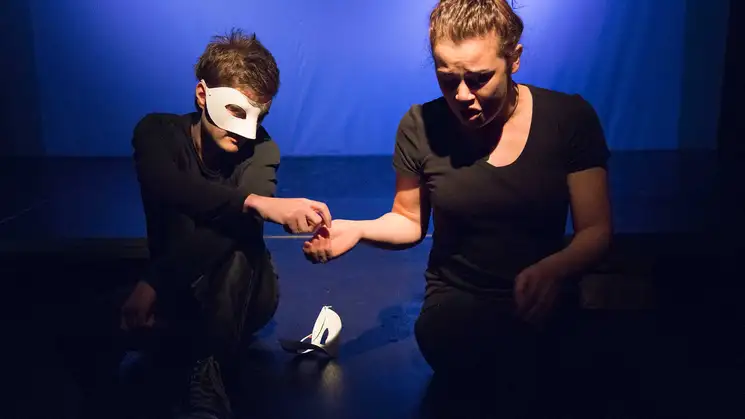
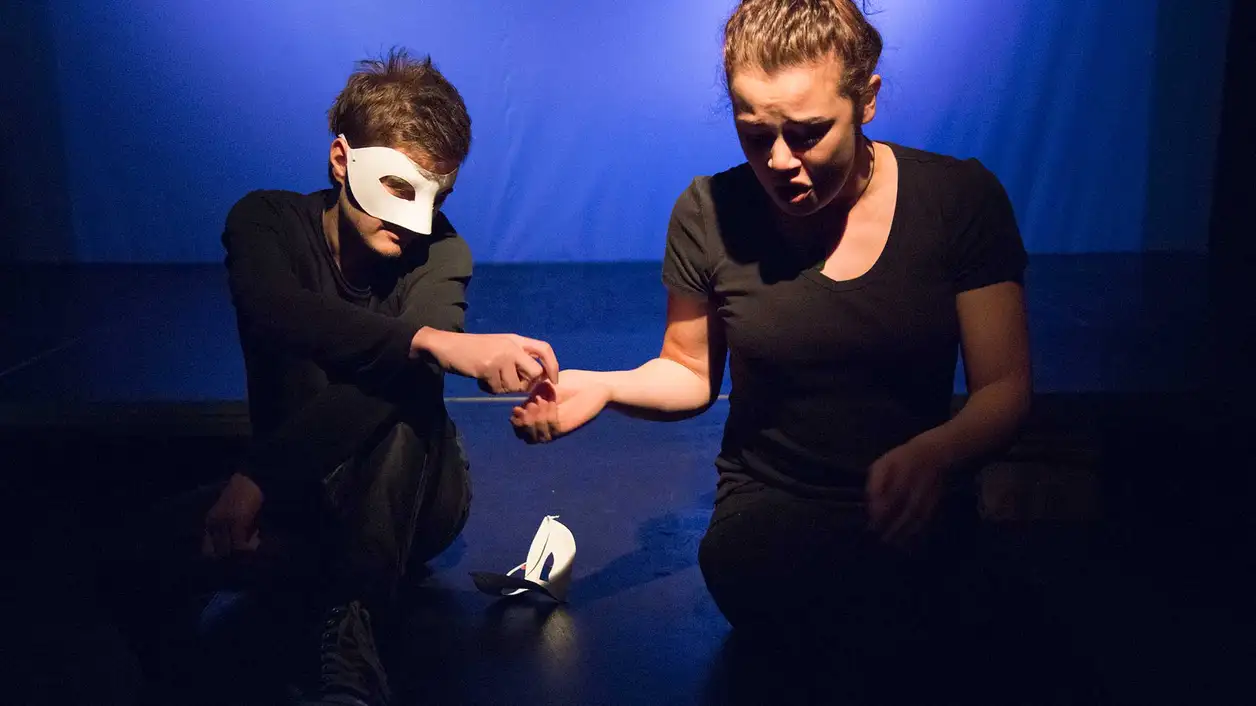
Study history, philosophy & culture
Learn about anthropology, classics, history, museum studies, philosophy and much more from some of New Zealand's finest cultural educators.
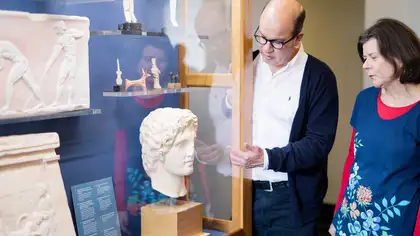
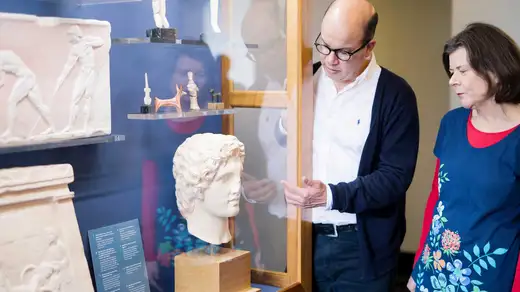
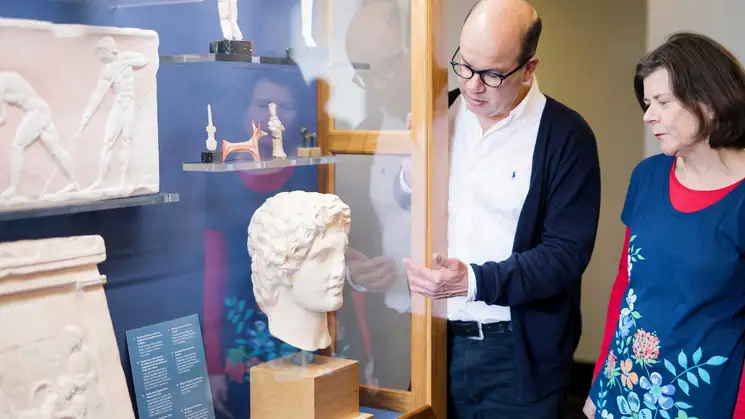
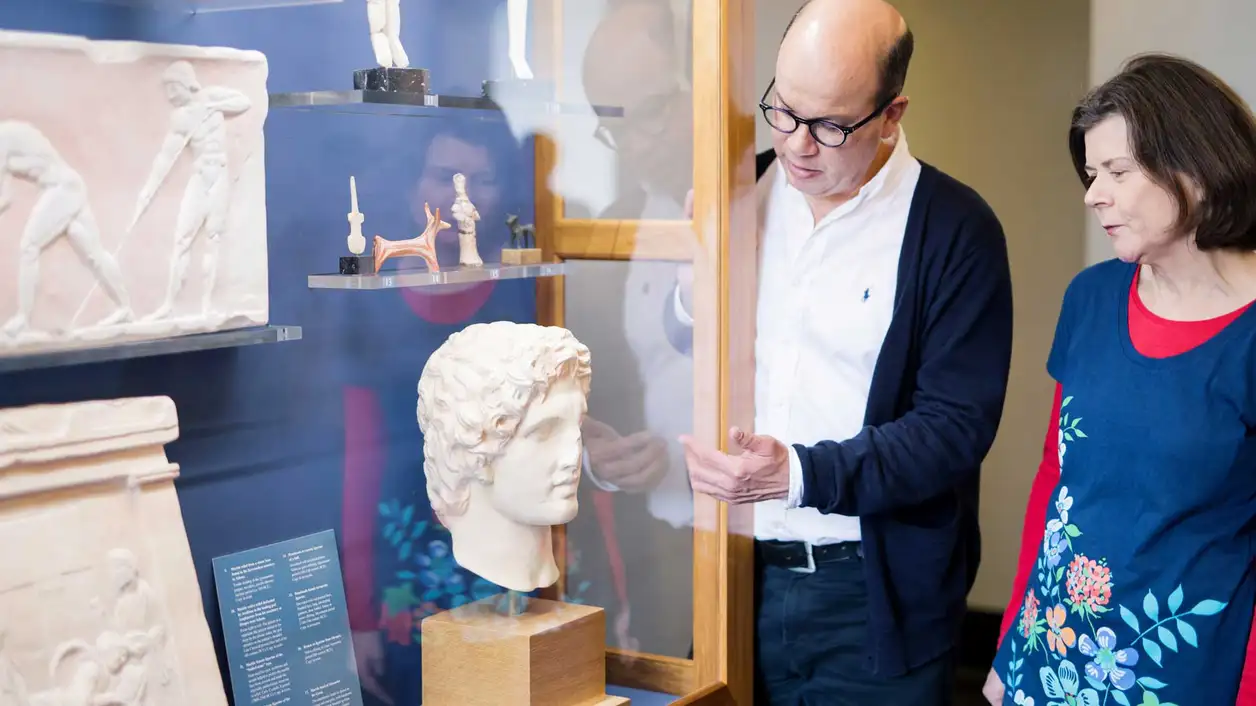
Study languages & linguistics
Studying language helps us understand the world and each other. Graduates can also turn a language qualification into a successful career.
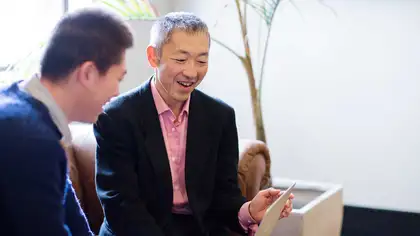
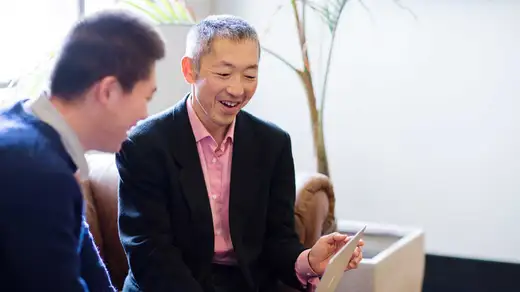
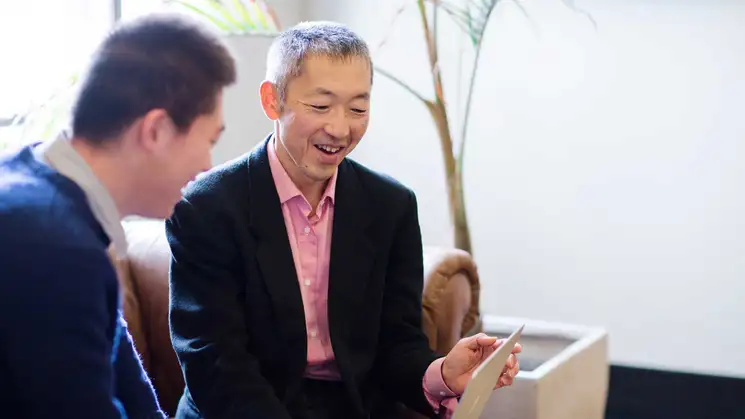
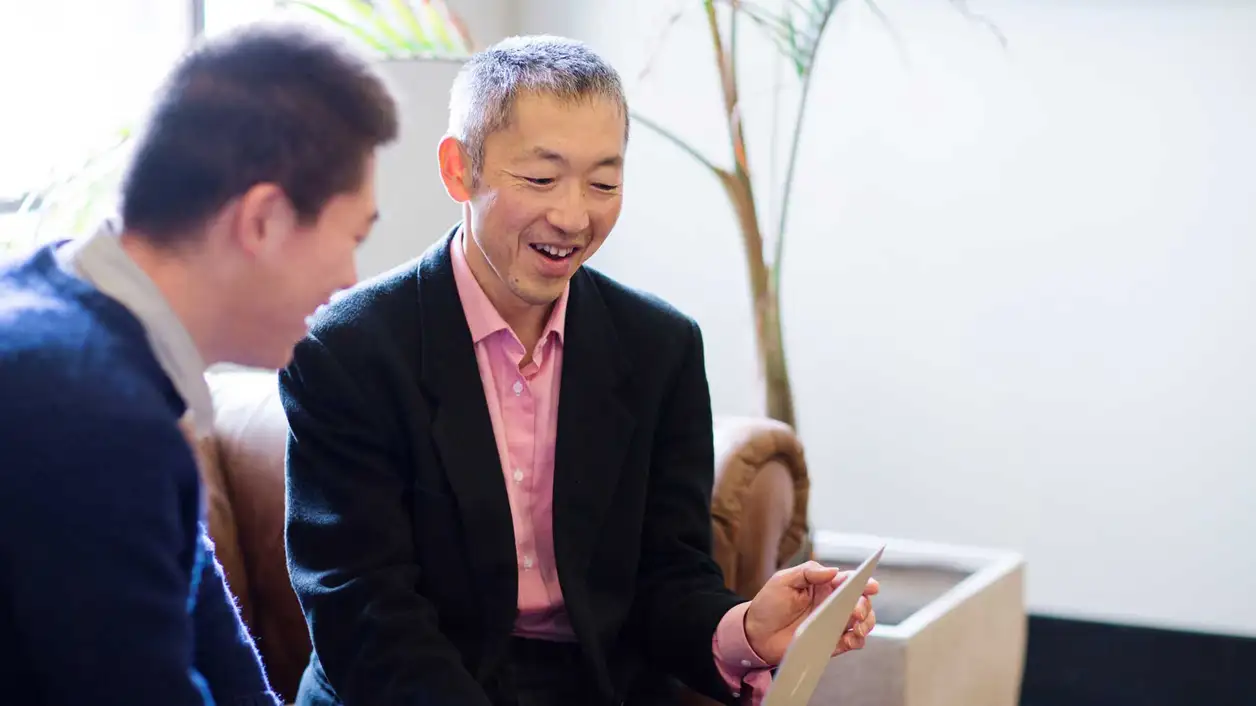
Study media & communication
The complex and exciting world of media, mass communication and journalism provides rewarding study and promising career paths. Learn more now.
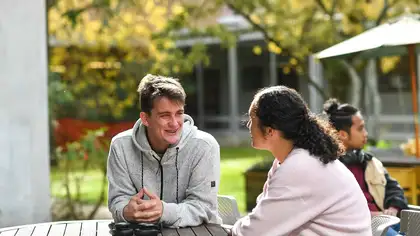
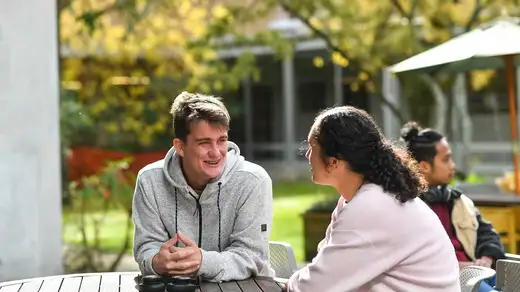
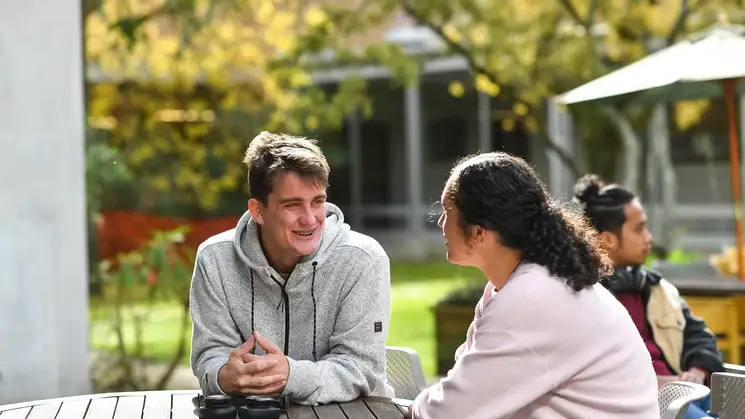
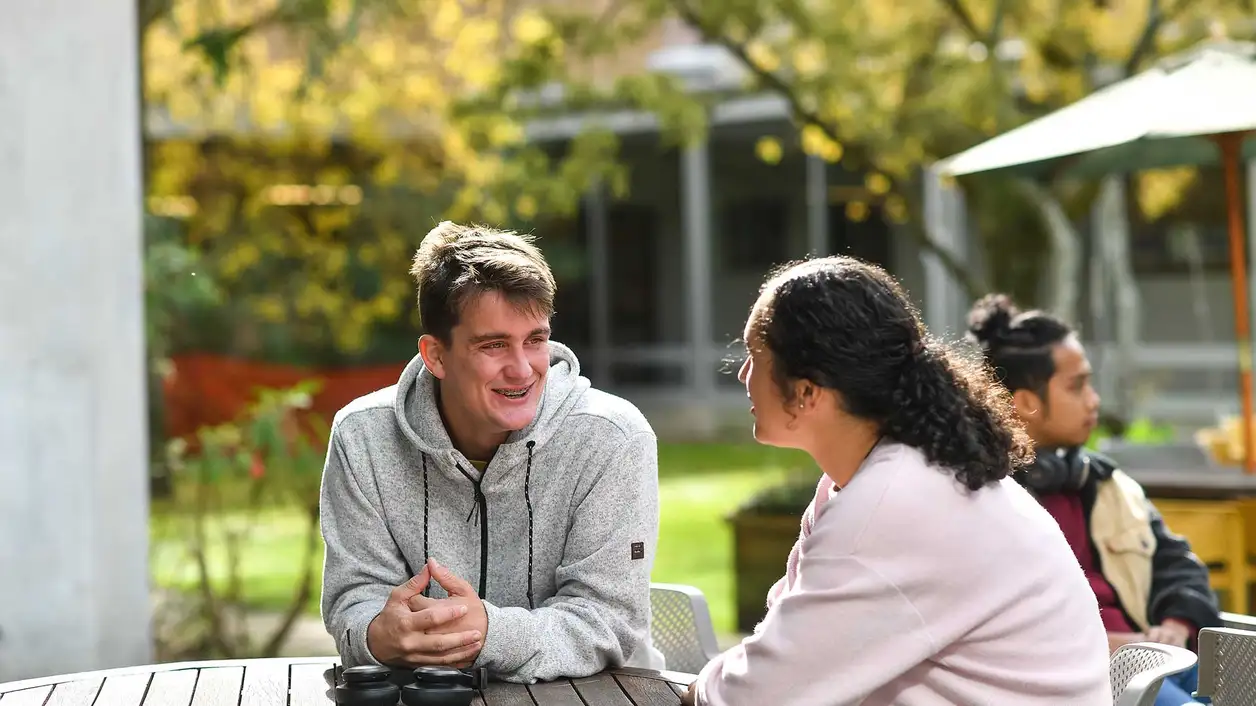
Who we are
Our people make us who we are. Meet some of the team in the School of Humanities, Media and Creative Communication.
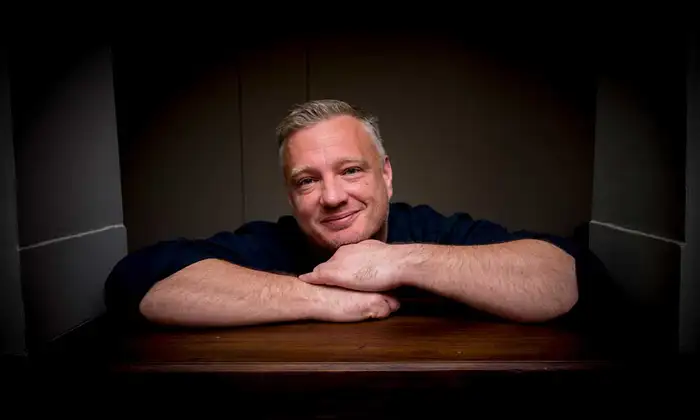
Professor Bill Fish
Bill Fish focuses on the philosophy of mind and perception. He is particularly interested in naïve realism and exploring if this view can be extended to theories of consciousness more generally.
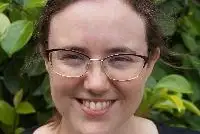
Dr Eleanor Ridge
Eleanor Ridge works on the documentation and description of Vatlongos language of highly multilingual Vanuatu. Eleanor focuses on variation in morphology and syntax, and how best to support language maintenance efforts across the speaker community as an outsider linguist.
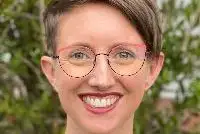
Dr Kyra Clark
Kyra Clarke’s research prioritises representations of girls, as well as the media girls and gender-diverse youth access, create and share. It intersects popular culture, media creation and distribution, mediated intimacies, feminism, queer theory and affect.
Research
Our staff have internationally recognised expertise and are award-winning writers, communicators, film-makers and theatre-makers. From the history and culture of past societies to international languages, the creative arts to the impact of digital technologies, our research is diverse in form and approach.
Research projects
Explore a selection of our research projects recently awarded grants from the Marsden Fund Te Pūtea Rangahau.
Massey researchers awarded Te Pūtea Rangahau Marsden funding
Do endangered languages get simpler under threat?
Dr Eleanor Ridge
Research into young people’s language use in urban and rural communities in Vanuatu.
As endangered languages are used less often and by smaller speaker populations, grammatical features and irregularities might be lost, leaving a simpler language overall.
By working with young speakers today, as well as newly available data recorded between the 1960s and 2000s, this project analyses changes to linguistic structure in different Vatlongos speaker communities, and how those changes are connected to risk factors in language endangerment.
Understanding the media girls consume, create, and share in New Zealand
Dr Kyra Clarke
In the media today, girls are presented with stark contrasts. The visibility and agency of high-profile celebrities, alongside harassment and abuse. How do girls navigate such tensions?
This project uses an innovative methodology to listen to 14 to 15-year-old girls and gender diverse youth, and centre their perspectives.
The project aims to understand how girls participate in their media worlds, how they experience belonging, and how we might understand these practices as cultural citizenship in an increasingly global mediascape.
Research teams
Examples of how our people create and share new knowledge.
Classical World New Zealand
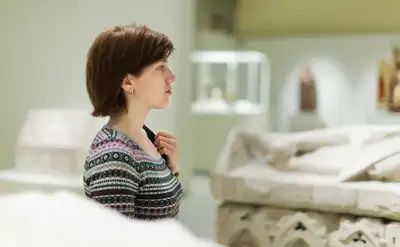
Dr Anastasia Bakogianni
Classical World New Zealand demonstrates the modern world’s ongoing dialogue with ancient Greece, Rome and Egypt and highlights New Zealand’s contribution to this conversation.
Digital Culture Laboratory (DigiLab)
Dr Nicholas Holm
DigiLab's research aims to help us:
- better understand our digital environment
- develop responses and resources to improve social and cultural outcomes.
Research centres
Our research centres seek innovative solutions to contemporary issues.
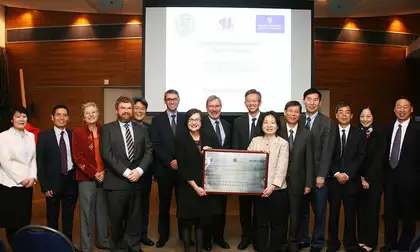
Joint Research Centre in Applied Linguistics
Professor Cynthia White
The Centre contributes new knowledge via online language learning innovations such as pairing students with native Mandarin speakers via video. It's a partnership between Massey University and Beijing Language and Culture University.
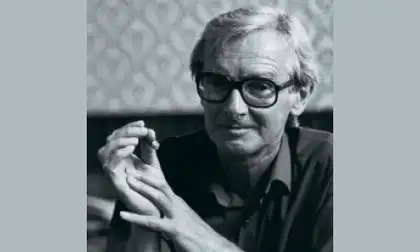
W.H. Oliver Humanities Research Academy
The Academy fosters a vibrant, creative and responsive research culture among humanities scholars, to anticipate and addresses current and future research challenges.
Rankings
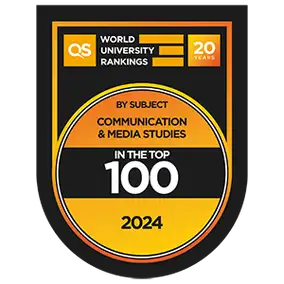
QS Ranking - Communication and Media
Massey is ranked by QS (Quacquarelli Symonds) as one of the top 100 universities for communication and media studies. QS is an organisation that ranks universities worldwide in various topics.
R. G. Frean Prize
Our school offers the R. G. Frean Prize. The prize is awarded for excellent critical, expository or creative writing in an undergraduate course in English or expressive arts.
Contact the School of Humanities, Media and Creative Communication
School of Humanities, Media and Creative Communication – Auckland campus
- sohmcc@massey.ac.nz
- Phone
+64 9 414 0800 extension 84421
- Location
Physical address
School of Humanities, Media and Creative Communication
Massey University
Level 2 Atrium Building
Gate 1, 473 State Highway 17
Albany
Auckland 0632Postal address
School of Humanities, Media and Creative Communication
AL206
Massey University
Private Bag 102904
North Shore
Auckland 0745Use our Auckland campus maps or find us on Google Maps.
School of Humanities, Media and Creative Communication – Manawatū campus
- sohmcc@massey.ac.nz
- Phone
+64 6 356 9099 extension 84421
- Location
Physical address
School of Humanities, Media and Creative Communication
Level 4, Room 4.04 or 4.64
Sir Geoffrey Peren Building
Tiritea Road
Manawatū campus
Tennent Drive
Palmerston North 4410Postal address
School of Humanities, Media and Creative Communication
PN241 or PN242
Massey University
Private Bag 11222
Palmerston North 4442Use our Manawatū campus maps or find us on Google Maps.
School of Humanities, Media and Creative Communication – Wellington campus
- sohmcc@massey.ac.nz
- Phone
+64 4 801 5799 extension 84421
- Location
Physical address
School of Humanities, Media and Creative Communication
Massey University
Level C, Block 7, Gate F
Tasman Street
Wellington 6021Postal address
School of Humanities, Media and Creative Communication
Massey University
Private Box 756
Wellington 6140Use our Wellington campus maps or find us on Google Maps.
Social media
Connect with the College of Humanities and Social Sciences on Facebook
Looking for a staff member? Visit our staff directory or use Expertise search.
